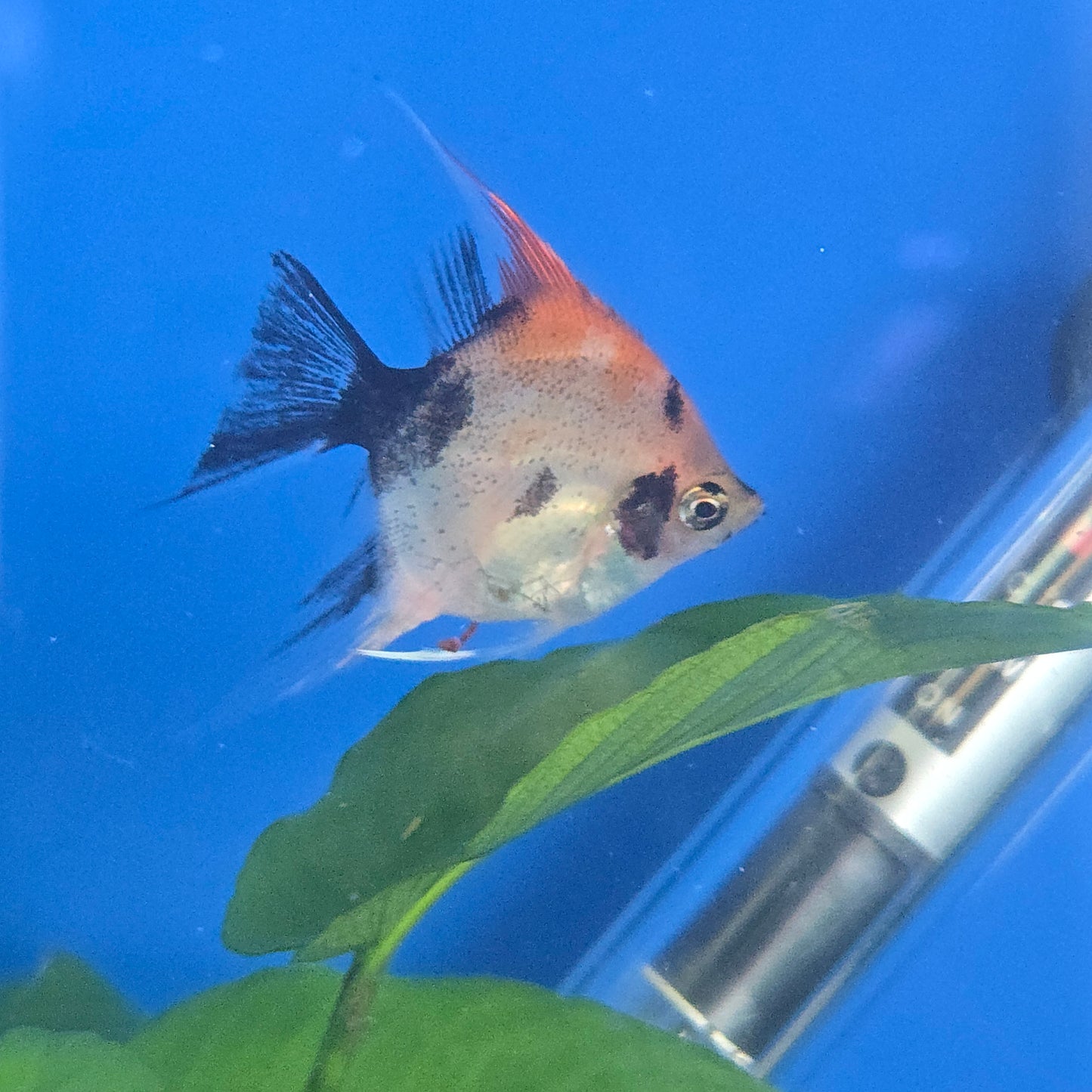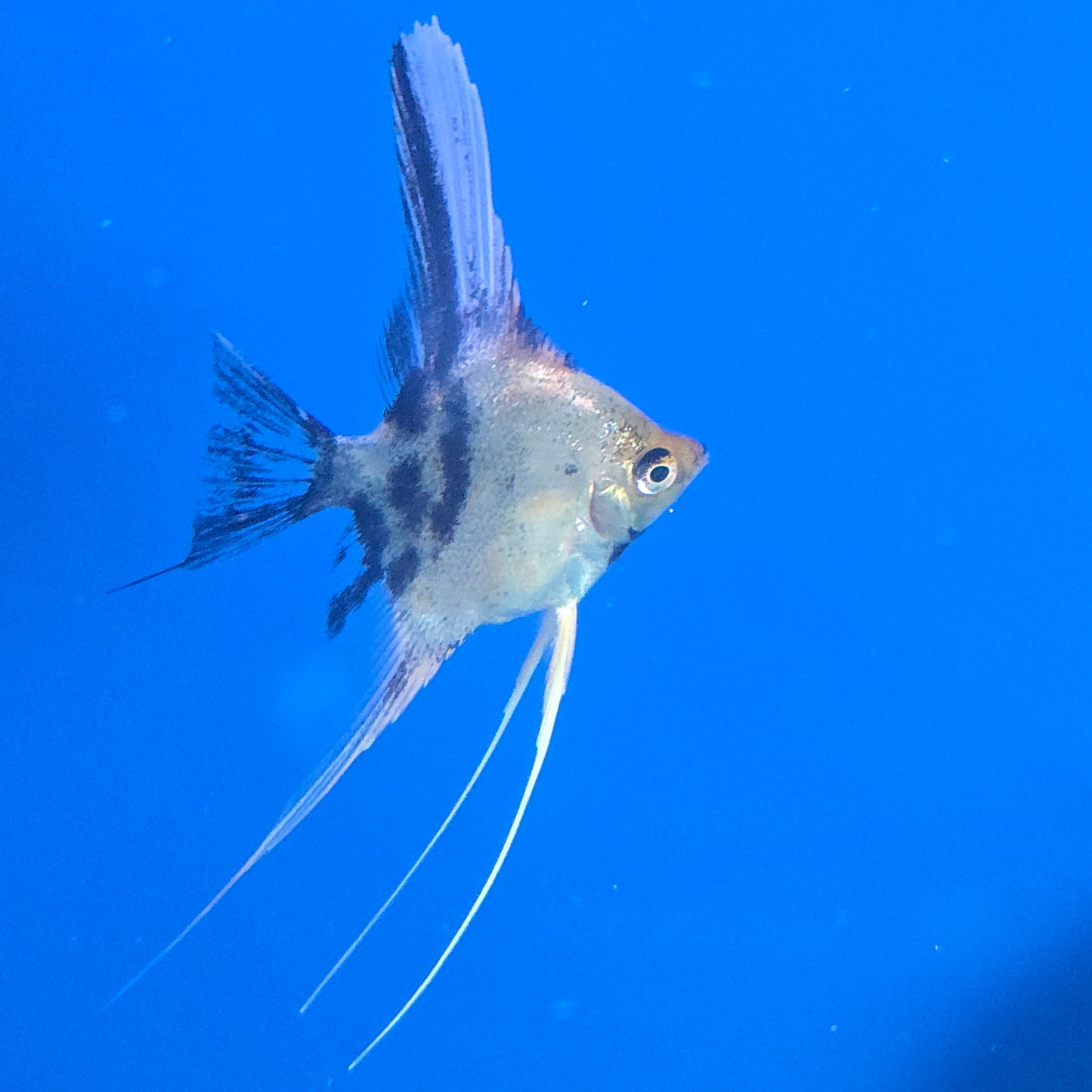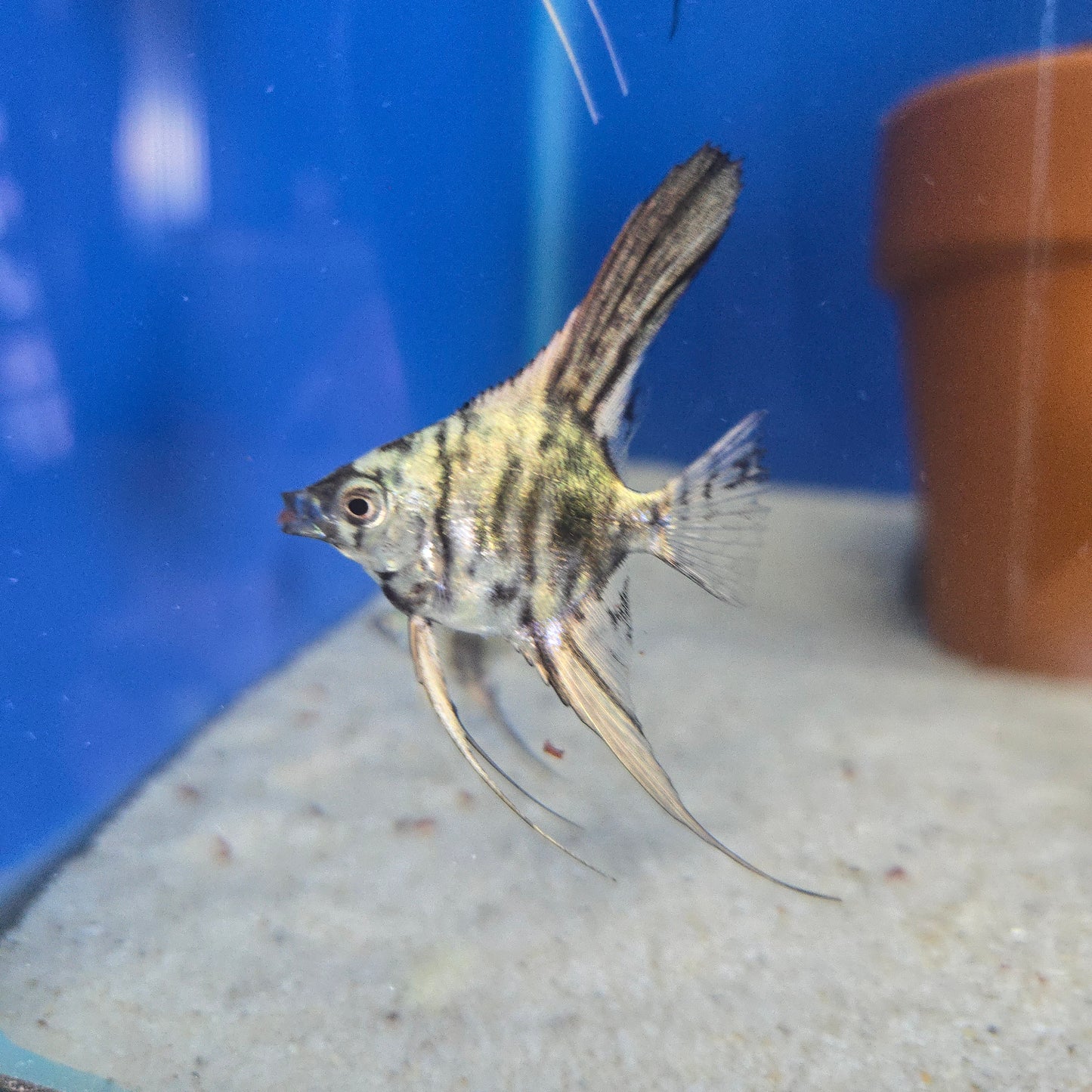Fancy Fish and Aquascapes
Angelfish ~ Pterophyllum scalare
Angelfish ~ Pterophyllum scalare
Couldn't load pickup availability
Angelfish, a classic species in the aquarium hobby, are known for their striking, triangular shape and graceful swimming. Native to the slow-moving waters of the Amazon Basin, these fish are often seen in community tanks due to their peaceful, yet slightly territorial nature as they mature. With proper care, they can live for several years, becoming a centerpiece of many freshwater aquariums.
- Size: 6 inches (body), 8-10 inches (fin span)
- Lifespan: 10-12 years
- Temperament: Semi-aggressive, peaceful when young
- Group/Solitary: Best kept in pairs or small groups
- Food: Omnivorous, flake food, live/frozen food (bloodworms, brine shrimp)
- Water Requirements: 76-84°F, pH 6.0-7.5, soft to moderately hard water
Angelfish are relatively hardy and thrive in a well-maintained aquarium with soft, slightly acidic water, which mimics their natural habitat in the Amazon. They prefer a tank with plenty of vertical space due to their tall fins and will appreciate a variety of plants and driftwood to swim through. As they grow, angelfish can become territorial, particularly during breeding. It’s recommended to keep them with other peaceful fish but avoid keeping them with smaller species like neon tetras, which might be seen as prey. Angelfish are omnivorous, and a balanced diet should include high-quality flakes or pellets, supplemented with live or frozen foods like bloodworms and brine shrimp. Maintaining stable water conditions with regular water changes will keep them healthy and reduce the likelihood of common diseases like ich.
Angelfish originate from the Amazon River and its tributaries, where they hide among roots and submerged plants to avoid predators and hunt for small prey. Their unique body shape allows them to navigate these dense environments. Despite their delicate appearance, angelfish are relatively robust in the right conditions and can even breed in captivity, with dedicated care from their owners.
Fun Fact: Angelfish form monogamous pairs and are known for their parental instincts. Once they spawn, both the male and female will carefully guard their eggs and fry, fanning them to ensure proper oxygen flow and removing any that fail to develop.
When ordering, these default to "mixed" variety. Mixed may have a different color pattern than the one shown. In fact, it probably most likely will not.
Share





